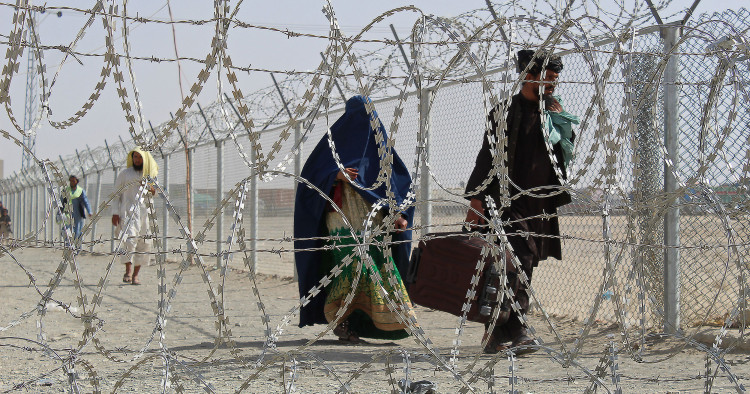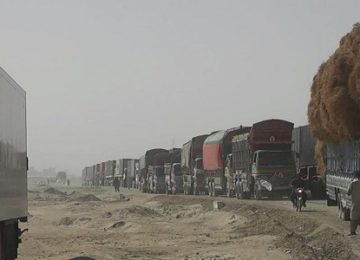KABUL/PESHAWAR, Pakistan, Feb 20 (Reuters) – Taliban authorities have closed the main border crossing between Afghanistan and Pakistan, an Afghan official said on Monday, and residents in the area reported the sound of gunfire near the normally bustling border transit point.
A Taliban provincial information official said the Torkham border crossing, near the Khyber Pass, was closed for all trade and travellers.
“The Pakistan side hadn’t committed to their promises, they have promised to create facilities for transit, sick people and passengers,” said Siddiqullah Quraishi, the head of the Afghan province of Nangahar’s information department, as the reason for the closure.
He did not elaborate on the issues but said both sides were speaking to try to find a solution and denied there had been any violent clashes, saying the situation was under control.
Pakistan’s foreign office did not immediately respond to a request for comment.
Pakistani military, police and government spokespeople were not immediately available for comment, but two Pakistani security officials in the region confirmed that the border had been closed and some gunfire had been exchanged.
Disputes linked to the 2,600 km (1,615 mile) border have been a bone of contention between the neighbours for decades.
The Torkham border point is the main point of transit for travellers and goods between Pakistan and landlocked Afghanistan.
Mohammad Ali Shinwari, a resident of Landi Kotal on the Pakistani side, said the border had been closed late on Sunday and gunfire erupted early on Monday.
“When we heard gunshots in the morning, we got worried and believed that troops of the two countries might have started fighting,” he said.
Clashes on the border have occurred for years, during the two-decade rule of Afghanistan’s U.S.-backed government and since the Taliban took over Afghanistan in 2021.
Clashes between Afghan and Pakistani security forces have also at times closed the second most important crossing between the two countries, at Chaman to the south.
Pakistan’s foreign minister told a security conference in Germany on Sunday that the risks of militancy stemming from Afghan soil could affect the world.
A Taliban foreign ministry spokesperson said later Pakistan should raise issues in private and not at public forums.
The foreign ministry said the Taliban administration would not allow its territory to be used against other countries, particularly against its neighbours.








